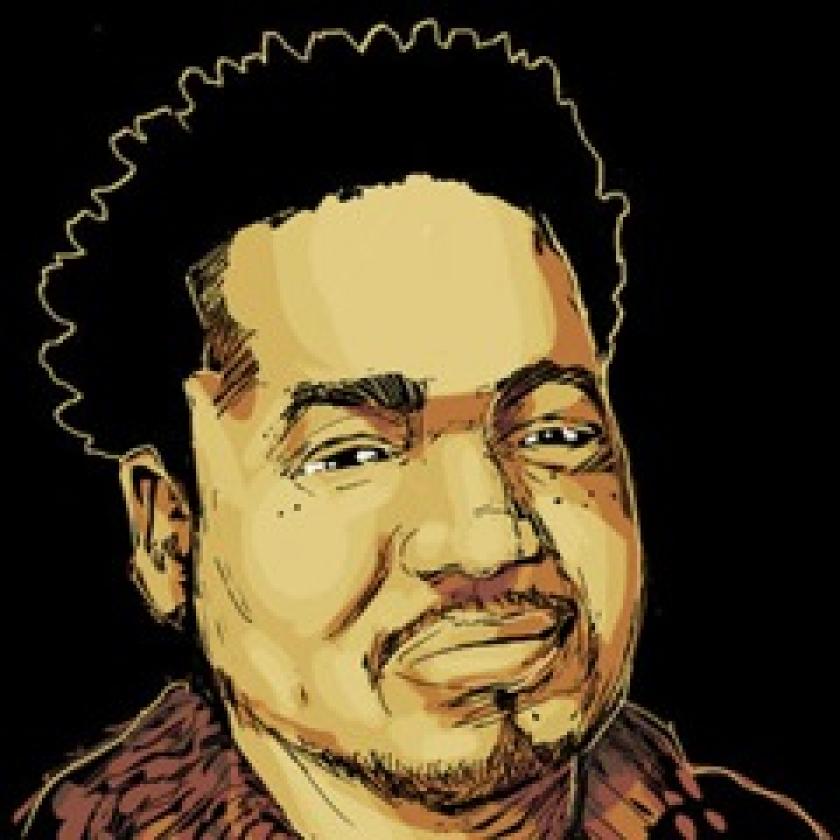
 Join GSLIS alumnus André Brock (PhD ’07) on Tuesday, February 19, from 3:00-4:30pm in GSLIS 126 as he presents, “Critical Cultural Informatics: Twitter and Black Discourse.” This presentation, sponsored by the GSLIS Inclusions and Exclusions Group and part of Black Geek Week, will be recorded and archived.
Join GSLIS alumnus André Brock (PhD ’07) on Tuesday, February 19, from 3:00-4:30pm in GSLIS 126 as he presents, “Critical Cultural Informatics: Twitter and Black Discourse.” This presentation, sponsored by the GSLIS Inclusions and Exclusions Group and part of Black Geek Week, will be recorded and archived.
Black Geek Week is a campus event highlighting the achievements of African Americans who have pushed the boundaries of thought and technology in academia; science, technology, engineering, and mathematics (STEM); and the Arts. Black Geek Week is hosted by the Bruce D. Nesbitt African American Cultural Center (BNAACC). Brock also will participate on the panel “Turning Your Passion Into A Career” on February 18 from 7:00-8:00pm in the Illini Union Pines Lounge.
The complete schedule of events, available online, also includes “Women in Geek Culture” a panel discussion including Safiya Noble (MS ’09, PhD ’12), GSLIS affiliated faculty member (February 18, 6:00-7:00pm, Illini Union Pines Lounge).
Title:
“Critical Cultural Informatics: Twitter and Black Discourse.”
Abstract:
Critical cultural informatics (CCI) focuses on the
interpellation of ideology and technoculture in interactions between people,
institutions, and computers. Extending
Pacey’s (1984) definition of technology as “artifact/practice/belief” by
incorporating Day’s (2006) arguments for critical informatics, CSI employs humanistic
methods such as close reading, rhetorical and discourse analysis, and
hermeneutics to unpack the semantics and pragmatics of computational artifacts
in use. For this presentation, I will
present a CCI approach to the ‘Black Twitter’ phenomenon.
Social media—in this case study, Twitter—mediates and is mediated by the culture of its users. Twitter’s combination of brevity, multi-platform access, and feedback mechanisms has enabled it to gain mindshare far out of proportion to its actual user base, including an extraordinary number of Black American users. How best to understand Twitter’s reception and uptake by Black Americans, who surprisingly comprise over a quarter of all US Twitter users?
I approach these claims through an analysis of Twitter from two perspectives: an analysis of the interface and associated practices alongside critical discourse analyses of online discussions of Twitter’s utility and audience. This dual analysis employs critical race and technocultural theory to understand how mainstream online authors (out-group) and Black online authors (in-group) articulate Twitter as a racial artifact employing technocultural practices. Initial findings indicate that Twitter’s feature set and multi-platform presence play major roles in mediating cultural performances by Twitter users. These same features also, depending upon the racial affiliation of the discussant, mediate how those cultural performances are understood: for example, Twitter was seen as a venue for civic activism (or public sphere) or as an active facilitator of deficit-based Black cultural stereotypes. I conclude that recent demographic changes roughly correlating to the “‘browning’ of America” and the resultant changes in patterns of ICT usage allow us to understand Internet norms of communication as White, technocultural practices instead of solely computationally determined communication styles. Future directions for this research strand include a compilation of a critical whiteness framework to more clearly articulate how Twitter ‘norms’ of communication map onto White male geek subculture.
Speaker Biography:
André Brock is an assistant professor at the University of Iowa holding a joint appointment in the School of Library and Information Science and the Project on the Rhetoric of Inquiry. His research studies identity formation on the Internet and in other digital technologies. In recent work, he has examined racialized critiques of an open source web browser; representations of race and gender in videogames; and African American usage of Twitter.